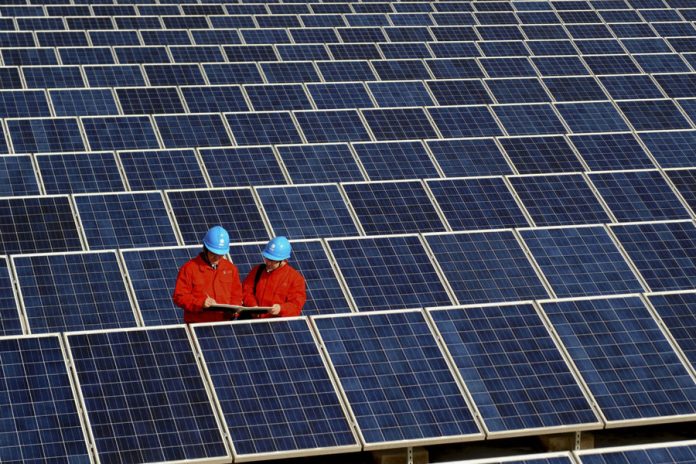China is expected to add 95 to 120 gigawatts (GW) of solar power in 2023, or as much as 30%, a solar manufacturing association said on Thursday, in what would be a record annual rise in capacity.
The world’s biggest solar products maker and solar power generator brought 87.41 GW of new solar power into operation in 2022, official data showed, driving the total installed capacity to 392.61 GW.
“The development of solar power stations in China continues to face several problems despite a slight decrease in investment costs,” said Wang Bohua, honorary chairman of the China Photovoltaic Industry Association (CPIA) at a conference.

While the country’s solar capacity is growing rapidly, its solar products exporters are facing more trade disputes and tougher competition offshore in destinations such as the United States, the European Union and India.
The United States in December banned imports, including solar products, from China’s Xinjiang region over concerns about forced labour.
Some 3 GW of solar modules exported from China have been seized by U.S. customs due to suspicion they could have come from slave labour camps.
However, exports of solar modules last year grew at a slower pace of 56% as more module plants have been built overseas.
“Chinese solar firms should pay greater attention to the competition, as the U.S., EU and other countries are putting in place policies and making actual moves to support their local industry,” said Wang.
























